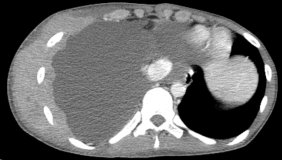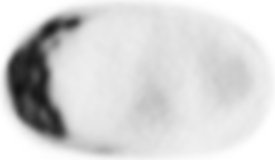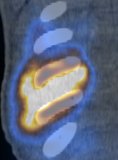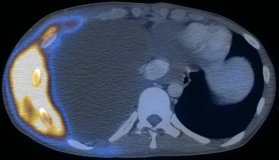Extranodal NK/ T-cell lymphoma, nasal type (ENKTCL) is a distinct, rare, clinico-pathologic entity associated with Epstein-Barr virus (EBV). It most commonly arises in the nasal cavity, but can also involve the face, skin, soft tissues, upper respiratory tract, and gastrointestinal tract. ENKTCL arises in all geographic locations of the world, but is predominant in South-East Asia, Mesoamerica and South America.
Viable NK lymphoma is intensely hypermetabolic, with PET-CT most sensitive for disease detection in the nasopharynx, and to a lesser extent in extranasal sites such as cutaneous lesions and bone marrow involvement. PET-CT is helpful to assess disease progress and to evaluate residual disease after therapy. PET maximum standardized uptake value (SUVmax) has not been shown to correlate with clinicopathologic features or prognosis.
NK lymphoma has an extremely poor prognosis with a median survival of less than one year. Although optimal treatment has not been clearly defined, radiotherapy and high-dose chemotherapy plus stem cell transplant are considered reasonable treatment options.







